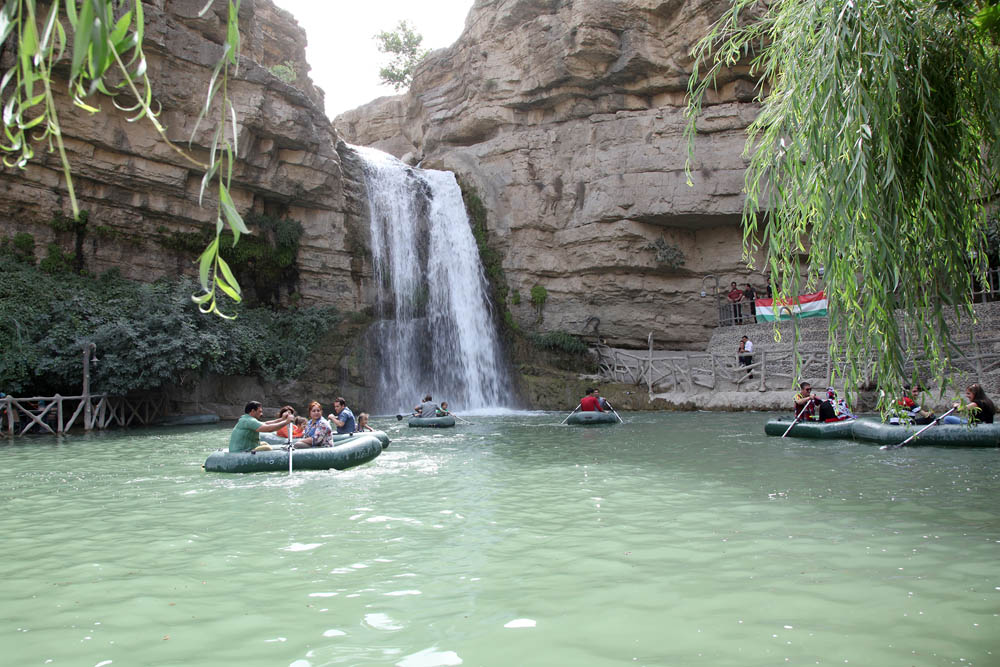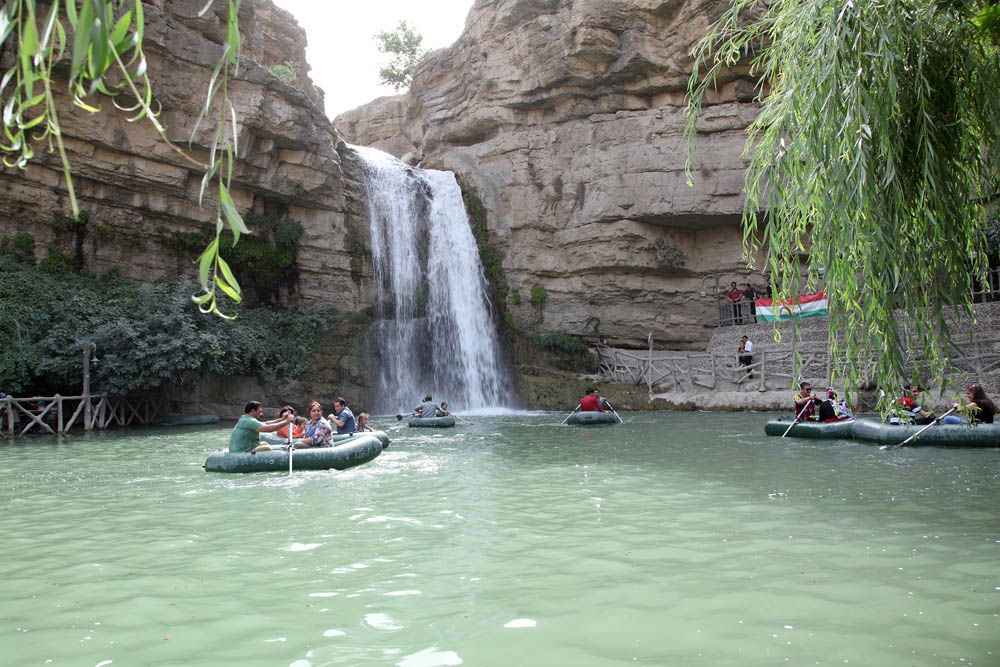The beauty and tragedy of Iraqi Kurdistan
It's "a Middle Eastern Montana with ruins: a cooler, welcoming tableau of crisp mountain streams and scrappy peaks."

A free daily email with the biggest news stories of the day – and the best features from TheWeek.com
You are now subscribed
Your newsletter sign-up was successful
Each week, we spotlight a dream vacation recommended by some of the industry's top travel writers. This week's pick is Iraqi Kurdistan.

Iraqi Kurdistan could become a great travel destination — "if people would only stop confusing it with the Iraq they see in the news," said Tim Neville at The New York Times. That might be a tall order, given Iraq's bloody recent history. But the semiautonomous Kurdistan region, in the country's northeast corner, is nothing like battered, dusty Mosul. It's "a Middle Eastern Montana with ruins: a cooler, welcoming tableau of crisp mountain streams and scrappy peaks." The local tourism industry was dealt a near-fatal blow in 2014, when ISIS pushed into the region. But following the jihadist group's collapse, Kurdistan is again becoming a place where a traveler can ride a gondola to ski slopes or kayak on a calm mountain lake. What's more, "you can stroll around Erbil, the regional capital, concerned with only how to decline, politely, invitations to drink tea."
I spent a week exploring the region last spring with Balin Zrar, a charismatic, chain-smoking guide from Kurdistan Iraq Tours. At Erbil's bustling bazaar, I stuck my nose into sacks of za'atar and sumac and watched two teen lovebirds — "she in a hijab, he in jeans" — kiss behind a tree in a park. We also visited Mar Mattai, one of the world's oldest Christian monasteries, which clings to the side of a mountain. "On a clear day a visitor can stand against its fortress-like walls and discern far below the winsome farmlands of Upper Mesopotamia." Outside the city of Dohuk, I walked the battlefield where in 331 B.C. Alexander the Great routed the forces of Persian King Darius III, a victory that allowed Alexander to build an empire stretching from Greece to Pakistan.
The Week
Escape your echo chamber. Get the facts behind the news, plus analysis from multiple perspectives.

Sign up for The Week's Free Newsletters
From our morning news briefing to a weekly Good News Newsletter, get the best of The Week delivered directly to your inbox.
From our morning news briefing to a weekly Good News Newsletter, get the best of The Week delivered directly to your inbox.
War will always haunt Kurdistan. My whole trip oscillated between "breathtaking beauty" and "heartbreaking anguish." We danced in shin-deep water at the Gali Ali Begg waterfall, then visited the city of Halabja, where in 1988 Saddam Hussein murdered as many as 5,000 Kurds in a chemical gas attack. Standing in the husk of one of Saddam's lavish palaces, I gazed across endless peaks stretching toward Turkey. Later, I met the 25-year-old founder of a kayaking club who hopes to one day open an outdoor shop in Erbil. "When there is no war in my country," he said, "Kurdistan is the best place."
Read more at The New York Times, or book a journey with Kurdistan Iraq Tours. Trips start at $2,000.
A free daily email with the biggest news stories of the day – and the best features from TheWeek.com
-
 Health insurance: Premiums soar as ACA subsidies end
Health insurance: Premiums soar as ACA subsidies endFeature 1.4 million people have dropped coverage
-
 Anthropic: AI triggers the ‘SaaSpocalypse’
Anthropic: AI triggers the ‘SaaSpocalypse’Feature A grim reaper for software services?
-
 NIH director Bhattacharya tapped as acting CDC head
NIH director Bhattacharya tapped as acting CDC headSpeed Read Jay Bhattacharya, a critic of the CDC’s Covid-19 response, will now lead the Centers for Disease Control and Prevention
-
 Epstein files topple law CEO, roil UK government
Epstein files topple law CEO, roil UK governmentSpeed Read Peter Mandelson, Britain’s former ambassador to the US, is caught up in the scandal
-
 Iran and US prepare to meet after skirmishes
Iran and US prepare to meet after skirmishesSpeed Read The incident comes amid heightened tensions in the Middle East
-
 Israel retrieves final hostage’s body from Gaza
Israel retrieves final hostage’s body from GazaSpeed Read The 24-year-old police officer was killed during the initial Hamas attack
-
 China’s Xi targets top general in growing purge
China’s Xi targets top general in growing purgeSpeed Read Zhang Youxia is being investigated over ‘grave violations’ of the law
-
 Panama and Canada are negotiating over a crucial copper mine
Panama and Canada are negotiating over a crucial copper mineIn the Spotlight Panama is set to make a final decision on the mine this summer
-
 Why Greenland’s natural resources are nearly impossible to mine
Why Greenland’s natural resources are nearly impossible to mineThe Explainer The country’s natural landscape makes the task extremely difficult
-
 Iran cuts internet as protests escalate
Iran cuts internet as protests escalateSpeed Reada Government buildings across the country have been set on fire
-
 US nabs ‘shadow’ tanker claimed by Russia
US nabs ‘shadow’ tanker claimed by RussiaSpeed Read The ship was one of two vessels seized by the US military